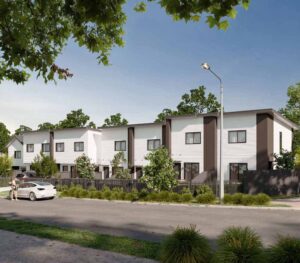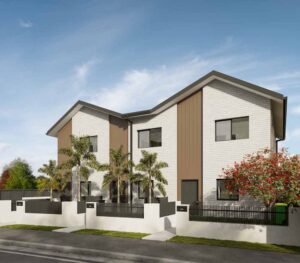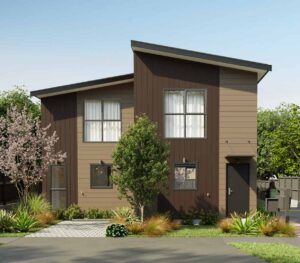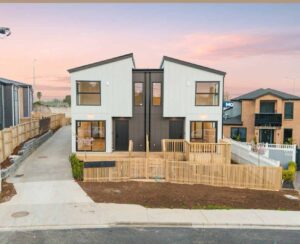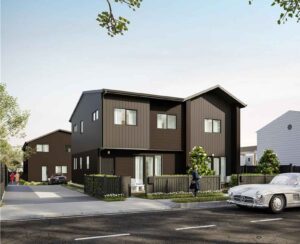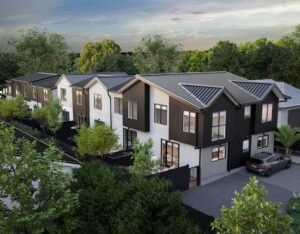Understanding Leasehold Title | Pros, Cons, and more...

Leasehold, what does it mean?
Leasehold is a type of property ownership title in New Zealand. This is the type of ownership in which you own the building built on the land, where the land does not belong to you.
In short, when you buy a leasehold property, you acquire the building and the right to lease the land for a specified period.
Now, since you have rented the land, you have to pay ground rent to the landowners.
The thing to highlight here is that you get to rent the land only for a limited period of time.
All terms and conditions are typically detailed in the contract signed between the owner and the leaseholder. This contract includes:
The amount of ground rent to be paid
How often will the land owner review the rent?
How long will the lease last? (This will also cover the terms on whether it is possible to renew, and if yes, what are the terms)
Most Common Types of Leasehold Properties in New Zealand
One thing we would like to point out here is that not all leasehold properties are the same, and you will not be able to find them everywhere.
According to sources, there are approximately 17,000 leasehold properties in New Zealand, with a third of these located in Auckland.
Coming to the types of properties:
- 69% Apratments
- 18.5% Flats/Townhouses
- 10% Houses
Pros of Leasehold Title
Here are the key advantages of buying a leasehold property in New Zealand:
1. Lower Purchase Price
Lower upfront cost than a comparable freehold property because you’re only buying the building (or the right to occupy) rather than the land.
This can make it easier to get into prime locations such as Auckland’s waterfront, CBD apartments, or other high-demand areas.
2. Access to Premium Locations
Leasehold land is often in blue-chip spots, think inner-city or waterfront, where freehold land would be out of reach for most buyers.
Lets you enjoy lifestyle perks (harbour views, central-city living) without the million-dollar land cost.
3. Potentially Lower Rates and Insurance
Because the land isn’t yours, council rates may be based only on the building value, not the land value.
Some insurance premiums can also be slightly lower because the land isn’t part of your asset base.
4. Predictable Lease Terms
Well-structured leases set clear ground rent reviews and timeframes, often every 7–21 years, so you know when adjustments happen.
Some long-term leases (for example, 99 years) provide stability similar to freehold ownership for decades.
5. Lower Maintenance Responsibilities
Depending on the lease agreement, the landowner may handle certain structural or land-related upkeep, reducing your ongoing costs.
6. Investment and Tax Advantages
Investors may benefit from higher rental yields relative to purchase price if rent from tenants offsets ground rent.
Some expenses, like ground rent, may be deductible against rental income (check with a tax professional).
Important Note:
These advantages apply only when the lease terms are favourable. Always check the ground rent review schedule and formula, the remaining lease term (banks typically want at least 30–35 years left for lending), and any restrictions on improvements or subletting.
Cons of Holding a Leasehold Title
Here are the key disadvantages of buying a leasehold property in New Zealand:
1. Ongoing Ground Rent
You must pay regular ground rent (also called “lease fees”) to the landowner, which is an extra cost on top of your mortgage, rates, and maintenance.
Ground rent can increase substantially when the lease is reviewed, often every 7 to 21 years, sometimes with no upper limit.
2. Limited Capital Growth
Because you don’t own the land, the property’s resale value is more closely tied to the building alone.
Rapidly rising ground rent or a lease nearing expiry can make the property harder to sell and limit long-term gains.
3. Financing Challenges
Banks and lenders are cautious with leasehold titles.
Many require a significant unexpired lease term (commonly 30–35 years) and may demand a larger deposit or charge higher interest rates.
4. Depreciating Asset as Lease Runs Down
As the lease term shortens, the property’s value typically declines.
Buyers may face difficulties refinancing or reselling once the lease drops below key lending thresholds.
5. Restrictions in the Lease Agreement
You may need the landowner’s consent for alterations, additions, or even subletting.
Certain leases include strict rules about use and upkeep.
6. Higher Holding Costs Over Time
While initial purchase prices are lower, escalating ground rent and the need for periodic rent reviews can make the property more expensive than a comparable freehold home in the long run.
7. Uncertainty at Lease Expiry
When the lease ends, you might have to renegotiate new terms, often at a much higher rent, or surrender the building altogether if no renewal is agreed.
Key Takeaway:
Leasehold properties can offer affordable entry into prime locations, but rising ground rent, limited capital growth, and financing hurdles mean you must examine the lease terms in detail and seek professional advice before committing.
Frequently Asked Questions About Leasehold Properties
Leasehold, What Does it Mean?
This is one of the most common question people often ask about leasehold properties. Luckily we have covered leasehold meaning above in the beginning of this article. You can check the meaning here.What are the obligations for the leasehold?
For a New Zealand leasehold property, you must pay regular ground rent (with periodic rent reviews), cover council rates and insurance, keep the building in good repair, and follow all lease conditions such as use restrictions or getting consent for alterations or subletting. When the lease expires, you must either negotiate a new lease, often at a higher rent, or vacate and hand the land back to the owner.What does the body corporate charge cover?
In New Zealand, body corporate charges are the shared costs of running and maintaining a multi-unit development such as apartments or townhouses. They typically cover: Building insurance for the entire complex (common areas and structure). Repairs and maintenance of shared spaces like roofs, lifts, lobbies, gardens, and driveways. Utilities for common areas like lighting, water for landscaping, rubbish collection, etc. Management fees for the body corporate’s administration and meetings. Long-term maintenance fund contributions for big future works such as repainting or roof replacement. These fees don’t usually cover rates or utilities for your individual unit, you pay those separately. As a leaseholder, can I renovate or extend my property? Yes, you usually can renovate or extend, but only if the lease agreement and the landowner allow it.Typical requirements are:
Written consent from the landowner before starting any structural work or major alteration. Compliance with council building consents and New Zealand Building Code. Renovations must not breach any use restrictions or covenants in the lease. Minor, non-structural updates (like repainting interiors) often don’t need approval, but anything that changes the structure, footprint, or exterior almost always does. Always check your specific lease and get legal advice before planning major work.Do I have to pay home insurance as a Leaseholder?
Yes. As a leaseholder in New Zealand you’re responsible for insuring the building (and your contents), even though you don’t own the land. Most leases specifically require: Full replacement insurance on the dwelling or improvements. Proof of cover each year, often naming the landowner as an “interested party.” If you’re in an apartment or townhouse with a body corporate, the body corporate usually insures the entire structure and you only need contents insurance, but you still pay your share of that insurance through body corporate fees. Always check your lease and body-corporate rules to see exactly what cover you must maintain.Is it Possible to get a mortgage on a short lease?
It’s possible, but much harder to get a mortgage on a short lease in New Zealand.- Banks want a long remaining term. Most lenders require at least 30–35 years left on the lease after the mortgage term ends.
- If the lease is shorter, you’ll likely face higher deposits, stricter conditions, or outright refusal.
- Even if a bank agrees, interest rates can be higher and the property’s resale value lower.
Conclusion
A leasehold title can open doors to desirable locations and lower purchase prices, but it comes with ongoing costs and conditions that require careful planning. Before committing to any leasehold property, make sure you fully understand the lease agreement, especially the ground rent review schedule, the remaining lease term, and any restrictions on renovations or subletting.
Because financing can be challenging and long-term capital growth may be limited, always seek advice from a property lawyer and a mortgage broker.
Whether you’re comparing rent-to-own options or simply wondering “Leasehold, what does it mean?”, the key is to balance the lower entry price with the long-term obligations so you can decide if a property that is leasehold truly fits your financial goals.

